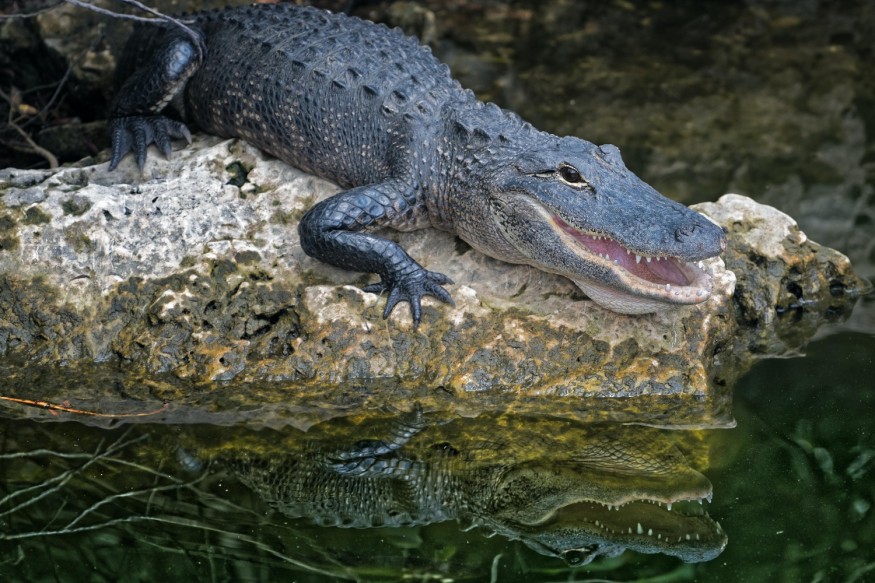On Sunday, February 19, a four-foot-long alligator was recovered from a lake in a New York City park. The gator was spotted in Prospect Park in Brooklyn, the city's second-largest public park. Maintenance workers discovered it swimming in Prospect Park Lake at 8 a.m.

Alligator Rescued for Rehabilitation
Science Alert reported that New York City officials said that the "very lethargic" alligator was found in a New York park and possibly dumped by its owner far away from the species' warmer home in the southeast United States.
The Parks Enforcement Patrol and Urban Park Rangers were able to promptly rescue the animal, which they described as being in "bad health" when they discovered it.
The alligator was sent to the Animal Care Center of NYC for treatment, where staff dubbed it "Godzilla." It was then moved to the Bronx Zoo for rehabilitation, adding that "thankfully no one was harmed." The Parks Department believes that Godzilla is thought to be an abandoned pet. It is around four feet long (1.2 meters), while mature American alligators can grow to be more than 12 feet long.
Every year, Urban Park rangers in New York react to around 500 animal health reports. The latest notable alligator discovery in New York occurred in June 2001, when officials, the press, and interested locals spent five days tracking down and capturing a wayward caiman in Central Park.
Alligator Habitat: Why Releasing Pet Alligators to the Wild Is Not Advisable
According to the National Wildlife Federation, American alligators are cold-blooded reptiles that produce heat from their surroundings. They can not live north of North Carolina, despite being rather widespread in the warm weather of the southeast.
Moreover, Smithsonian's National Zoo & Conservation Biology Institute said that the American alligator may be found from North Carolina to the River Grande in Texas. Alligators are typically found in slow-moving, freshwater rivers and may also be found in swamps, marshes, and lakes. Since they lack salt glands, they can only tolerate salt water for short periods of time.
A Parks Department spokesperson said that the recently rescued four-foot-long alligator not only poses danger to parkgoers but releasing non-indigenous animals to the wild can also lead to the elimination of native species and unhealthy water quality. The alligator was found very lethargic and cold-shocked since its natural habitat is in warm, tropical climates.
Furthermore, the parks authority said on Twitter shortly after rescuing Godzilla that Prospect Park Lake is a Brooklyn treasure and home to park wildlife, but it is still not a safe place to release animals.
As per Metro, it is unlawful to release animals within a New York City park. Another similar case of abandoning an alligator was reported this year when a man in Neptune, New Jersey spotted an alligator inside a huge plastic bucket outside his home. It was then rescued on a frigid January night and sent to Cape May Zoo.
RELATED ARTICLE: 3-Foot Alligator Abandoned in New Jersey, Found in Storage Container Below-Freezing Temperature
Check out more news and information on Alligators in Science Times.












